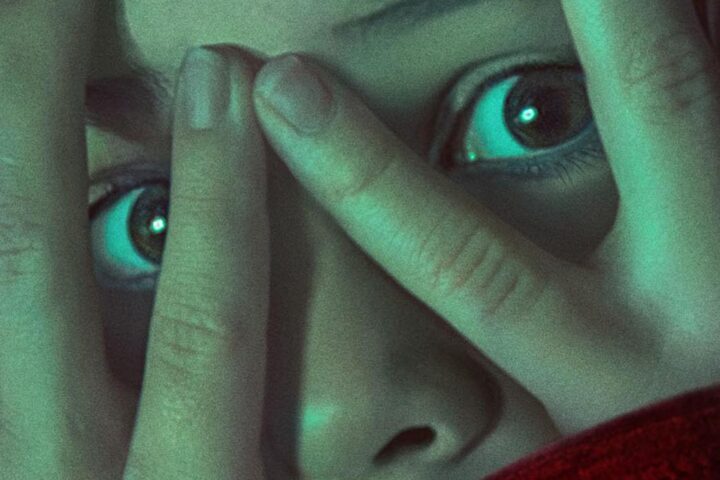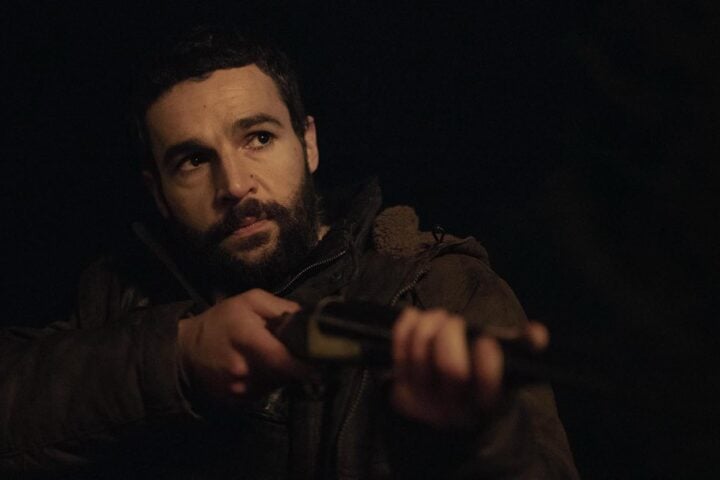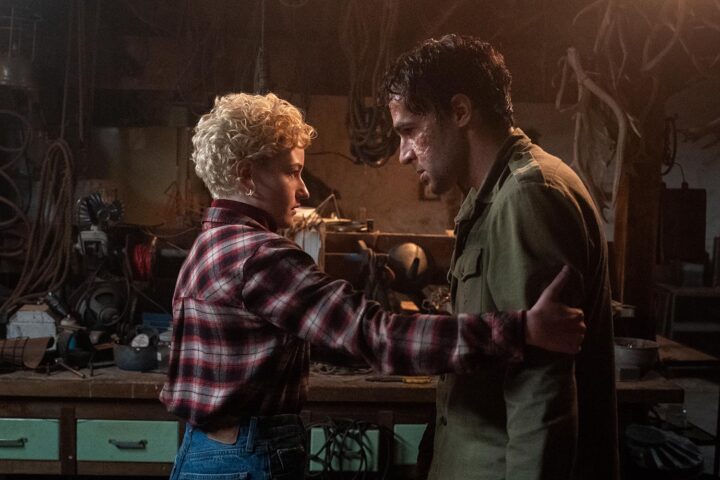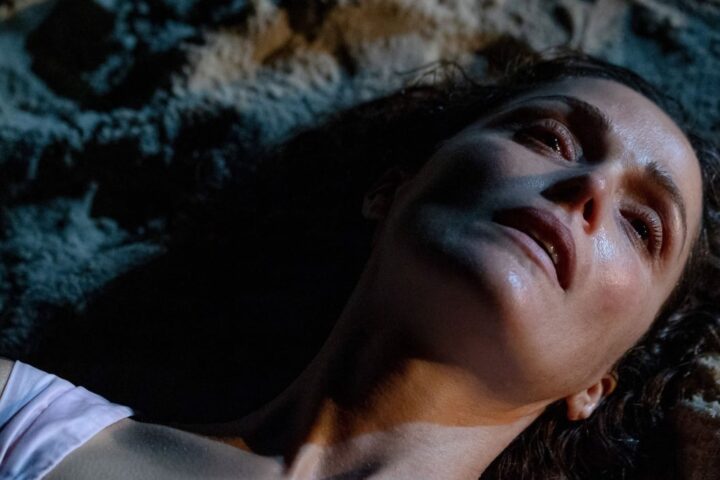Set in rural west Ireland, writer-director Christopher Andrews’s pastoral thriller Bring Them Down features little in the way of spectacular set pieces. Nor does the film hinge on a classic battle between a hero and a villain. Its genre bona bides are mostly established by its tightly wound plot and characters whose psychologies have been warped in the conjunction of patriarchal traditions and the pressures of capitalism.
Ostensibly, Bring Them Down follows Michael (Christopher Abbot), the taciturn scion of a wealthy family that has herded sheep for centuries. His father, Ray (Colm Meaney), though immobilized by bad knees, still exercises the authority of a biblical patriarch. Michael’s childhood girlfriend, Caroline (Nora-Jane Noone)—having left him some 20 years before the present action, in the fallout from his mother’s death in a car accident, for which he was responsible—is now married to the spiteful and debt-burdened alcoholic Gary (Paul Ready). Their young adult son, Jack (Barry Keoghan), sets off already simmering tensions between the two families by stealing two of Michael’s prize rams, claiming he found them dead.
The resulting tit-for-tat escalation, leading from property damage to violence, is a textbook exercise in building tension. But Bring Them Down uncovers an organic affinity between the genre mainstay of vengeance taking on a life of its own and the force exerted by paternal tradition, where the obligations of masculinity overwhelm both individual decency and law. In this, the film invites comparison with Rodrigo Sorogoyen’s 2022 thriller The Beasts.
The biblical undertones here, conflating God and father as a shepherd, are never stated, yet impossible to overlook, and the film’s tone of inevitability amounts to an anti-modern despair, suggesting that for all the progress wrought by the past 500 years of history, human nature remains essentially untouched: The bloody feuds that have wracked villages the world over, since time out of mind, still distort our consciousness and dictate our behavior.
That is, until Bring Them Down’s second half, which sees Michael and Jack trade places as protagonists, a plot twist that, by extension, involves a twist of themes. In this respect, Bring Them Down again recalls The Beasts, but its shift in perspective is in some ways less and, in others, more radical. Where Sorogoyen’s film jumps forward in time and switches from a male to a female point of view, this one jumps back in time and rewrites Jack’s initial function as the antagonist. This humanist move, to its credit, also increases the tension in the plot.
The younger Jack is driven by the contradictory demands of capitalism. Even as they disrupt the pastoral way of life by empowering his mother to divorce his father, they reinforce an idea of masculinity where “becoming a man” is synonymous with making money, and at all cost. At every step, Jack has the option to de-escalate his family’s conflict with Michael’s, yet he falls into banditry in the hope of extracting his father from debt and keeping his parents together. Along with his friend Lee (Aaron Heffernan), a second-generation Irish-Pakistani (whom he mistakenly assumes is Afghani), he cuts the hind legs off of Michael’s sheep for profit.
The shift wouldn’t work if not for Keoghan’s remarkable vulnerability and the way it both compliments and contrasts Abbot’s brooding resignation. But as illuminating as it is to see the same scenes played out from two points of view, Andrews employs essentially the same editing, lighting, and camerawork throughout, compressing the two halves of the film to a disappointing aesthetic flatness. Especially as the non-linearity isn’t immediately obvious, you may wish that more had been done to visually differentiate Jack’s perception of the world from Michael’s. Whether self-conscious or not, this stylistic monotony betrays how, even though Bring Them Down tells two sides of a story, those sides aren’t as counterposed as they might seem, leaving other facets of the narrative geometry turned to the side and feeling underserved.
Since 2001, we've brought you uncompromising, candid takes on the world of film, music, television, video games, theater, and more. Independently owned and operated publications like Slant have been hit hard in recent years, but we’re committed to keeping our content free and accessible—meaning no paywalls or fees.
If you like what we do, please consider subscribing to our Patreon or making a donation.






